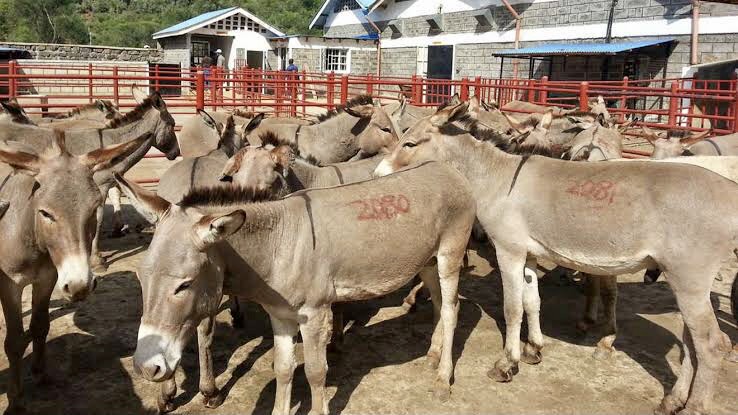
By Faith Nyasuguta
The Tanzanian government has closed down a donkey abattoir for going against animal welfare, humane slaughter, and slaughterhouse hygiene.
In a letter from the state, the Ministry of Livestock and Fisheries repealed a provisional permit handed to Fang Hua Investment Company Ltd in Ibadakuli, Shinyanga region.
“You are no longer allowed to receive donkeys at the facility and are given one more week starting August 14 to slaughter all remaining donkeys at the facility to avoid their (continued) suffering,” the ministry said.
According to the ministry, the firm is yet to establish donkey nucleus farms, a scheme for donkey breeding, feeding, housing, and disease control as vowed in the original action plan.
The Arusha Society for the Protection of Animals (ASPA) and the UK-based Network for Animals, both being animal rights activist groups, said the move was a “colossal victory” for donkeys’ welfare globally.
The Network for Animals says most of the donkeys were being “stolen in Kenya and Uganda and illegally smuggled across the borders.”

The Shinyanga plant is just one of the abattoirs set up in Tanzania by Chinese investors to facilitate a reportedly profitable trade in donkey skins.
The skins are often used to withdraw gelatin required for the manufacture of a traditional Chinese medicine ejiao used in the treatment of anaemia, reproductive issues, and insomnia. The other slaughterhouse is situated in central Tanzania.
Ejiao is also significant in the production of Chinese-made tonics and face creams, positioning it as a multimillion-dollar business.
Chinese traders often target donkey populations in Tanzania, Kenya, South Africa, Nigeria, Ghana, Burkina Faso, and Ivory Coast for these purposes, various animal charities said.
According to the Tanzania Veterinary Laboratory Agency, donkey numbers plummeted from about 1.5 million in 2016 to 595,000 in 2018.
Kenya, Tanzania’s neighboring nation is also said to have four registered abattoirs slaughtering over 1,000 donkeys a day.




